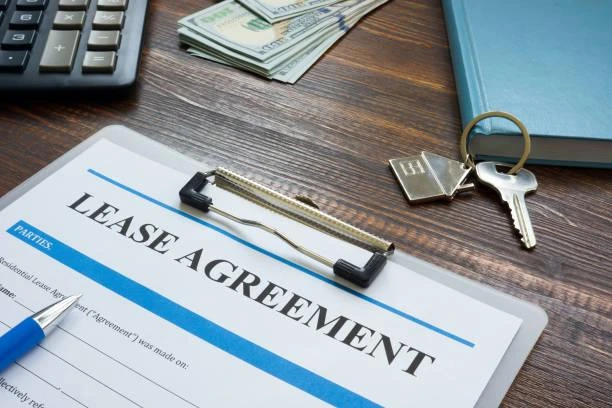Can A Felon Live With Someone On Section 8? Felony Programs
Can a felon live with someone on Section 8? Who can get section 8? Securing housing after prison is rigorous for felons due to their criminal records. Many rely on family or friends temporarily. Section 8 housing, which aids low-income households, is an option but rules about felons living with beneficiaries are crucial to understand.
Living with someone who receives Section 8 benefits raises concerns about eligibility for individuals with felony convictions, especially for those seeking stable housing after incarceration. It’s essential to grasp the specific rules and guidelines of the Section 8 program before considering it as a housing option. This understanding helps individuals determine if Section 8 housing could offer a viable path to secure a stable living arrangement despite their criminal history
What Is Section 8?
It’s important to first understand Section 8 housing and who can participate in the program. Section 8, also known as the housing choice voucher program, is operated by the federal government to assist disabled individuals, elderly persons, and low-income families in paying for rental housing in their local communities.

Participants in the program receive a voucher that helps subsidize their monthly rent payments, making housing more affordable. While the Department of Housing and Urban Development (HUD) funds and oversees the program, local public housing agencies manage the distribution of vouchers, which can lead to variations in rules and availability depending on the area.
To qualify for Section 8 housing, eligibility is based on family size and annual gross income. Generally, applicants must earn below 50% of the median income for their area. Federal regulations also ensure that at least 30% of vouchers are reserved for families earning below 30% of the local median income. Understanding these criteria is crucial for anyone considering Section 8 as an option for affordable housing.
How Section 8 Housing Operates Can Be Explained As Followed?
Section 8 housing plays a crucial role in the United States by assisting elderly individuals, those with disabilities, and low-income families. Participants who receive vouchers are responsible for paying a portion of their utilities and rent, typically 30% of their adjusted gross income. The remaining 70% of these costs are covered by the voucher, which is paid directly to the landlord.
Having the government cover 70% of monthly rental expenses can significantly alleviate financial burdens for families in need. However, eligibility for Section 8 is not automatic for felons, despite the challenges they often face in securing stable employment after leaving prison. Further details on this will be provided below.
Can A Felon Live With Someone On Section 8?
Individuals who receive Section 8 vouchers must adhere to the program’s rules to maintain their eligibility and avoid eviction.
The good news is that Section 8 allows voucher holders to live with felons, but specific rules apply. Generally, only immediate family members such as children, parents, or spouses can be added to the lease. In some cases, non-immediate family members may also be allowed, though landlords scrutinize felons more closely during the approval process.
It’s important to understand that landlords are prohibited by HUD regulations from rejecting Section 8 applicants solely because of their criminal history. However, engaging in illegal activities while in the rental property can result in eviction and loss of Section 8 benefits. Therefore, it’s essential for households to maintain lawful behavior to safeguard their Section 8 housing status.
What Are The Qualifications For Section 8 Housing To Get Home For Rent?
Is it possible for a parolee to live with someone who receives Section 8 benefits? Generally, yes, as long as the household meets the necessary requirements.
Before obtaining a Section 8 housing voucher, applicants must satisfy specific criteria. These include income verification, citizenship status, rental history, and other relevant factors, which will be discussed in more detail below.
Related Article: Second chance apartments in Fort Worth Texas
Household Income
The income level of the household is a critical factor in determining eligibility for Section 8 housing. Typically, eligibility is based on earning no more than 50% of the median income in the local area. However, households with incomes below 30% of the median income often find it easier to qualify for assistance.
Citizenship or Immigration Status
Applicants must generally be legal citizens of the United States to qualify for Section 8 housing. Some individuals with eligible immigration statuses may also be eligible for assistance.

Background Checks
Landlords conduct thorough background checks on all applicants to evaluate their suitability as tenants. A criminal history could potentially impact the landlord’s decision to approve the rental application.
Rental History
Having a stable and positive rental history is crucial for Section 8 eligibility. Applicants with a record of paying rent on time are more likely to qualify. Individuals with past evictions may face challenges in securing Section 8 benefits.
Other Considerations
Administrators and landlords consider various factors when prioritizing assistance. Disabled applicants may receive priority consideration, and the size of the household is also taken into account during the application process.
Living With A Section 8 Recipient: What To know
Living with someone who receives Section 8 benefits is an option for felons, but it involves navigating several considerations.
When applying for Section 8 housing, all family members undergo background checks. If a family includes a felon, this can complicate the approval process. Additionally, adding a new member to the household affects the family’s income evaluation, which may impact eligibility.
Beyond criminal records, landlords also assess factors like eviction history and rental payment reliability. These factors influence whether the family is deemed suitable tenants for the property.
While Section 8 housing can be beneficial for felons, families should carefully assess the potential challenges involved. Seeking guidance from local housing authorities can help clarify requirements and improve the chances of a successful application.
Landlords Matter
When it comes to Section 8 housing, it’s important to recognize the significant role that landlords and property managers play. They are responsible for managing properties and determining who qualifies to rent apartments.
Before approving tenants, landlords conduct thorough assessments of each applicant. Having a family member with a felony record can potentially complicate the approval process. Landlords prioritize community safety and may hesitate to rent to families with felony backgrounds.
While the Fair Housing Act protects applicants from discrimination based solely on their criminal history, landlords still hold considerable influence within the Section 8 program. Their decisions can impact whether families are approved for rental assistance under Section 8.
Rental Assistance For Felons
Even if felons face obstacles with the Section 8 program, they have alternative options to consider. They can seek assistance from legal aid services, participate in reentry programs, and reach out to local housing authorities for support.
Is It Possible For Felons To Purchase A House?
A felony conviction doesn’t necessarily bar you from purchasing a house, but it can make obtaining a mortgage more challenging. Lenders may approach the process with greater caution, although there are government programs and specialized lenders that cater to individuals with criminal backgrounds. There are ceratin felon-friendly apartments in each state, you just have to search “felon friendly apartmetn near me” to process the procedure
Are Convicted Felons Permitted To Reside In Public Housing?
As mentioned earlier, convicted felons can qualify for public housing, but there are limitations. Federal law prohibits individuals listed on lifetime sex offender registries and those convicted of manufacturing methamphetamine in public housing. Local authorities also have some discretion, so it’s advisable to contact your local Public Housing Authority for specific details.

How Does A Housing Voucher Work?
After being approved, participants receive a housing voucher intended to help cover their rent costs. This voucher gives individuals the flexibility to choose housing units that meet the program’s specific requirements.
Related Article: 20 States With No Sex Offender Residency Restrictions
How To Locate Housing Options For Felons Using Section 8?
There are many options available for felons looking to secure Section 8 housing:
Transitional Housing Programs
Examine programs that provide temporary housing to help individuals with criminal records transition to independent living.
ReEntry Programs
Find reentry programs offering extensive support, including housing assistance, for those with criminal histories.
2nd Chance Apartments
Search for apartment complexes or property management companies that cater to individuals with criminal records by providing second chances.
Homeless Shelters
Consider homeless shelters that can aid individuals with Section 8 vouchers in locating temporary or transitional housing.
Buy Your Own House
Explore the possibility of homeownership through government assistance programs or initiatives that help Section 8 voucher recipients purchase homes.
Get Help from Your Probation Officer
Seek advice and resources from your probation officer, who may have information on housing opportunities for individuals with Section 8 vouchers.
Final Words
Summing up, although felons can apply for Section 8 assistance, the process requires careful attention to eligibility requirements, proper documentation, and the implications of a criminal history. Understanding these elements allows individuals to work towards securing stable housing and rebuilding their lives.
Certain felony convictions can disqualify you from receiving Section 8 benefits. For example, convictions for drug-related offenses, violent crimes, sex offenses, fraud, or property crimes might make you ineligible for these benefits. Each program has its own benefits, and the rules can vary by location. To understand the requirements in your area, consult with someone at your local office.
Frequently Asked Questions
What Criminal Charges Disqualify You from Section 8?
Certain criminal charges can disqualify an individual from receiving Section 8 housing assistance. These include:
Conviction for producing methamphetamine in federally assisted housing.
Lifetime registration on a sex offender registry.
Drug-related or violent criminal activity, depending on the housing authority’s review.
Fraudulent behavior in relation to housing applications.
Each case is reviewed individually, and eligibility may vary by state or housing authority. It’s important to check specific local policies.
How to Report Someone Abusing Section 8 Online?
If you suspect someone is abusing Section 8 housing, you can report it online by:
Visiting your local housing authority’s website and looking for their fraud reporting section.
Filling out a form with details about the alleged abuse.
Providing accurate and specific information, such as names, addresses, and the nature of the violation.
Make sure to gather all relevant details to help the investigation process.
How to Report Someone Abusing Section 8 Anonymously?
To report Section 8 abuse anonymously:
Contact the housing authority via their anonymous fraud hotline or online reporting form.
Avoid sharing personal identifying information if you want to remain anonymous.
Ensure the information provided is detailed and factual, as anonymous reports may require more evidence for action.
Can a Felon Live with Someone on Section 8 in Texas?
In Texas, felons can live with someone receiving Section 8 assistance, but there are conditions:
The felony should not be for a violent crime, sexual offense, or drug production in federally assisted housing.
The housing authority may evaluate the felon’s history and rehabilitation.
The Section 8 tenant must report the felon’s residency to the housing authority, as unreported residents can lead to eviction.
How Does Section 8 Find Out If Someone Is Living with You?
Section 8 housing authorities use several methods to identify unreported residents:
Annual recertifications requiring tenants to declare household members.
Neighborhood reports from neighbors who notice unapproved residents.
Investigations and audits, including checking public records or employment information.
To avoid penalties, ensure all household members are properly documented with the housing authority.
How Long Can Convicted Felons Live in Public Housing?
The duration a felon can live in public housing depends on the crime and the housing authority’s rules:
Non-violent felons may be eligible immediately or after a specific waiting period.
Felons with serious criminal histories (violent or drug-related crimes) may face a ban or be evaluated on a case-by-case basis.
Public housing policies aim to balance providing housing with ensuring community safety.
Can a Felon Live in HUD Housing?
Yes, felons can live in HUD housing, but there are restrictions:
Felons convicted of manufacturing methamphetamine in federally assisted housing or registered as sex offenders are permanently disqualified.
Other felons may be eligible after background checks and depending on the nature of their crimes.
Housing authorities assess eligibility based on local policies and individual circumstances.
How to Report Someone to the Housing Authority Anonymously?
To report someone to the housing authority anonymously:
Use the anonymous tip line or online fraud report form available on the housing authority’s website.
Provide detailed information about the alleged violation, such as names, addresses, and specific instances of fraud.
Maintain confidentiality by avoiding personal identifiers in your report.
How Long Can a Felon Live with Someone on Section 8?
The duration a felon can live with someone on Section 8 housing depends on:
The nature of the felony – some offenses may require immediate disqualification.
Approval by the housing authority, including background checks.
The Section 8 recipient’s compliance with rules to report all household members.
Always consult with the local housing authority for specific guidelines.








3 Comments